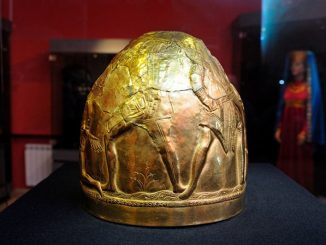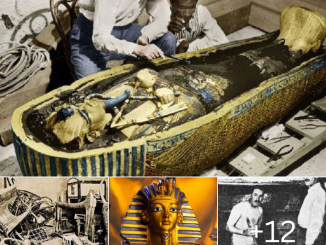Gold coins dating back 2,173 years, belonging to the Iron Age discovered by metal detectors, will be auctioned on September 28, valued at about 30,000 pounds.

Gold coins have existed since the Iron Age. Photo: Spink/BNPS
The amount of 12 coins discovered by Eldridge, a metal detector in November 2019, is expected to sell for 30,000 pounds when auctioned by Spink & Son in London. X-ray fluorescence analysis confirmed they contained about 75% gold with an alloy of silver and copper, revealing the economy in which the first British gold coins circulated.
Experts at the British Museum determined that the gold coin vault originated from the Catuvellauni tribe living in what is now Picardy, France, and was created in 150 BC, Daily Mail reported on September 26. The Catuvellauni grew into the most powerful tribe in Britain over the following century.
“While individual gold coins from this period have been found in south-east England, the discovery of a hoard of this size or age is extremely rare. Local coins of the time were simply cast from a base metal material called ‘potin’. Therefore, whoever imported this gold vault certainly has influence in the region,” said Gregory Edmund, senior expert at Spink & Son. know.
Most likely this gold was brought to England in exchange for mercenaries, equipment and hunting dogs to fight the Romans or other tribes in Belgium, according to Edmund. “A hoard of coins with such quantity and date has never been found in the archaeological record. There are other hoards from this period but only include 3 coins,” he said.
The coins show signs of being used a lot and are no longer new when buried in the ground. However, they still preserve remarkable details of a rarely seen form of Iron Age art. Many experts believe that the portrait on the coin was intentionally depicted as bisexual, despite being modeled after the god Apollo (male). “Feminine style is probably a reflection of the political importance of women in Iron Age society, which helped historical figures like Cartimandua and Boudicca stand out,” said Edmund.
The British Museum decided not to accept the coins, meaning they were returned to the discoverer. Eldridge will split the proceeds with the landowner.


